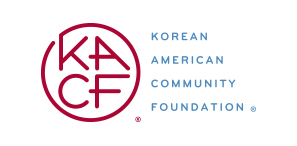
On April 29, 1992, Los Angeles erupted into violence following the acquittal of four LAPD officers who had been videotaped beating Rodney King, an unarmed Black man. The acquittal, coupled with a controversial verdict in which no jail time was served by a Korean shop owner who fatally shot Latasha Harlins, a fifteen-year-old Black girl, made LA’s Koreatown a flashpoint of long-simmering tensions.
In the violence that followed over six days, many Korean American business owners suffered a devastating loss to their livelihoods with a third of Koreatown’s businesses destroyed and close to $500 million in property damages. Although the reasons behind the riots were complex, the media painted a story that the unrest was a Black-Korean conflict rather than reflecting on decades of racial and economic injustice that marginalized communities had endured. This time of violence and trauma came to be known as “Sa-I-Gu”in the Korean American community.
This was the story in Los Angeles.
In New York City, there was the Family Red Apple boycott in Flatbush, Brooklyn. In 1990, a scuffle between a Black customer and a Korean grocery store owner inflamed tensions that erupted into an 18-month African-American led boycott of the Red Apple Grocery. Similar to Los Angeles, the events that led to the boycott and the implications of the standoff were much more complex than how it was portrayed in the media. What we learned was a need for understanding, empathy and work to address inequities that divide communities of color and keep them in the margins.
As community foundations, KACF and KACF-SF believe it is our responsibility to remember, reflect and learn from the lessons of our past.
To learn more about the story behind the Red Apple Grocery boycott, please join KACF President Kyung Yoon, who was the first Korean American broadcast journalist in New York and who covered the story, in a panel discussion tonight at Crosby Street Hotel in New York.
In San Francisco, please join KACF-SF Interim Executive Director Grace Lee in a panel discussion tonight to learn more about Sa-I-Gu and its impact at the B-Side at SFJazz Center.
It is imperative to carry forward the longstanding work that immigrants and communities of color have done to lift our stories out of the margins, build understanding, and stand in solidarity with each other.
Please join us in remembrance today.

JOIN OUR MAILING LIST